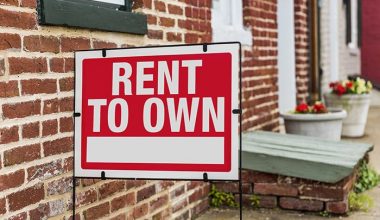Owning an estate in the state is everyone’s desire. Unfortunately, people are more interested in owning a house than in understanding the forms in which it exists. This is often a problem because if you do not understand the form in which your house ownership exists, you may violate laws and conditions. When this happens, you may lose your ownership rights over the house you so much love. Fortunately, this guide explains the various forms of freehold estate, particularly the fee simple estate, fee simple defeasible, fee simple absolute, and their various types and ownership rights. Let’s get started.
FEE SIMPLE ESTATE
You probably must have heard of the term “fee simple” especially while talking about freehold estate. It is the dominant form of ownership in the US. This word ”fee simple” applies only to real estate which includes land, and immovable property. Immovable property can also include buildings, roads, ponds, as well as machinery.
Fee simple is a legal term in real estate that means full and irrevocable ownership of land and any buildings on that land. It is the highest form of ownership which means individuals who hold this right can do whatever they want with the property. However, they are subject to local zoning ordinances.
If you bought a home recently, the ownership right is possibly a fee simple. What this means is that you own the property and therefore sit on all rights to its use, dispose of, and even destroy the property in question. Why? Because your name is on the title deeds and fee simple gives you such right. Fee simple right also applies to apartments in cases of condo and co-op housing. Owners of individual units receive fee simple ownership and this gives them the legal rights subject to an agreement called a restrictive covenant. However, residents in condos and cooperative housing share common rights for the use of public areas and also carry certain obligations toward its upkeep.
Understanding the various forms of fee simple ownership, its benefits, and obligations will unarguably help you manage your estate. This legal term is the first thing you should understand before buying a house in the united states.
ABSOLUTE FEE SIMPLE ESTATE
Fee simple absolute differs from fee simple. People usually mistake the fee simple absolute and fee simple. Although both are forms of freehold estate, they differ. While fee simple refer to land ownership, which involves using the land without restrictions and disposing at will, the fee simple absolute is a type of fee simple that allows the owner of the land to use, dispose of or damage it at will. It is the highest form of fee simple ownership.
Furthermore, the fee simple absolute is more powerful than the fee simple defeasible. The fee simple absolute in real estate is outright ownership with no restrictions as to what you do with it. So long as you abide by your local zoning laws. It is the most common form of ownership in the United States. In a fee simple absolute, owners own their properties and land forever. They also pass the estate to others without restrictions. Also, owners in a fee simple absolute arrangement can include certain conditions on their property or life estate when passing it down to anyone they wish to.
DEFEASIBLE FEE SIMPLE ESTATE
Fee simple defeasible is a type of property ownership where the ownership of land or property is dependent on specific conditions. More elaborately, a fee simple defeasible permits the original estate owner to pass his rights to another on a conditional basis. The person in turn holds these rights as long as certain conditions are met. The effect of this is that anyone who holds a fee defeasible estate, losses it once he violates conditions.
For instance, Mcdowell receives fee simple defeasible rights over Macphilip’s estate. They both agreed the house is for residential purposes. If Mcdowell ever turns it into a semi-commercial property or a hotel, he goes against their agreement. This means the estate rights revert to Macphilip. So long as Mcdowell keeps to the agreement, he can pass the estate right to his heir.
Types Of Fee Simple Defeasible in Real Estate
There are three types of fees simple defeasible in real estate. They are as follows;
#1. Fee simple subject to condition subsequent
This is the first of the three types of defeasible. In the case of fee simple subject to condition subsequent, the property does not automatically transfer back to the grantor if you violate the conditions of the owners. Instead, if you violate the conditions, the grantor has the option to take back the property this option is called the right of reentry. If the grantor does not take any action in response to the violation, then the property remains with the party that violated the terms.
#2. Fee simple determinable
The fee simple defeasible determinable in real estate takes is yet another form of transferred ownership. It is similar to fee simple subject to condition subsequent. When you do not meet the conditions in fee simple defeasible determinable, the grantor must take action. But in fee simple determinable, if you do not meet the conditions somehow, ownership of the property is automatically back to the grantor so there is no further action you need on their part.
#3. Fee simple subject to executory limitation
This final type of fee simple defeasible is very similar to fee simple determinable however, in the case of fee simple subject to executory limitation, if they could not meet the conditions somehow, ownership of the property is automatic to a third party with no further action required. (Whereas in fee simple determinable, it is automatically back to the grantor.)
WHAT IS A FEE SIMPLE ESTATE
The word “fee” is derived from the ‘fief’, meaning a feudal landholding. Feudal land tenures were existing in several forms. Most often, tenants have to supply services to their overlord, such as knight-service (military service) in ancient times. Fee simple estate ownership is traceable to this English system of ownership.
Understanding what a fee simple estate is, is simple and practically very easy if you’ve bought a house in the United States. The fee simple way of owning a home is by far the most common type of homeownership in the country.
But if you’re like most people, you probably have little idea what this type of ownership is and what rights it grants you. Fortunately, this form of ownership is relatively easy to know about.
So what exactly is a fee simple estate? It is simply a term that describes a landowner’s complete and total ownership of a piece of land and all properties on it. The fee simple owner may do anything they wish on the land as long as it falls within the zoning laws.
Meaning And Details Of A Fee Simple
Holding a fee simple ownership means you can add the main bedroom to your home, build a second-story addition, create a new garage, or even tear down your entire home and build a new one from scratch. You also have the right to sell the land and its buildings whenever you want. You can also pass down this property to whomever you’d like.
Furthermore, in English, a fee simple or fee simple absolute is an estate term and a form of freehold ownership. A “fee” is an inheritable, present possessory interest on land. A fee refers to a sub-category of such interests that features an absence of any temporal condition limiting its durational period under common law. Whereas the highest possible form of ownership interest that can be, in real property is a “fee simple absolute,” which means an absence of limitations regarding the lands.
The rights of the fee-simple like taxation, compulsory purchase, police power, and escheat are limited by the government. Further limits by certain encumbrances or conditions in the deed also exist. For instance, a condition that requires the land to be a public park.
Government bodies can use eminent domain to file liens against fee simple estates if their owners fail to pay property taxes or commit other violations. These stakeholders can then take back the property through the foreclosure process. ( A lien is a legal right that gives an individual or entity a claim to a collateral property until the outstanding debt is off.)
Which fee simple estate is the most common?
Freehold estates come in a variety of forms, including life estates, fee simple absolute, fee simple determinable, and fee simple conditional estates. The most prevalent type of estate in the United States is a fee simple absolute estate, and most house ownership deeds fit under this classification.
What is freehold vs fee simple?
A freehold estate is one in which you have the only right to possess a piece of property for an illimitable period of time. A less-than-freehold estate, on the other hand, is held for a set, predetermined amount of time. The highest possible ownership stake in a piece of land is fee simple absolute.
What is another term for fee simple?
The word “fee simple” is used to refer to the largest permissible ownership interest in real estate. It is also known as “full ownership.”
What are the two types of fee simple estate?
Simple Fees The most frequent and thorough stake in land is granted through an estate (its yours to be used without conditions or limitations). Fee Simple can be either absolute or defeasible.
What is meant by a fee simple estate in the land?
If you possess a piece of property in fee simple, you are free to do what you want with it. The only requirements you have are to follow the law, including zoning regulations and building norms, and to make tax and debt payments.
CONCLUSION
Having understood the various forms in which freehold estate exists, their difference, and ownership rights, you can check out your documents. That way, you know exactly what rights you have and how to use them. Also, it will help you in your next real estate deal.
FAQS
Who becomes owner of a fee simple absolute estate if the owner dies without an heir?
When someone who holds the fee simple absolute rights die, his heir becomes the owner with full rights. But if the deceased died without an heir, the State automatically holds fee an estate interest fee right over the property.
What are easements and encroachments?
Encroachment is commonly mistaken for an easement by the general public. Encroachments are when a neighbor’s property is entered into without their consent, whereas easements are when both parties consent to the use of the property. Both entail a neighbor’s property owner building additions on top of their own.
Why is a fee simple estate called the highest form of ownership?
There are certain reasons why the fee simple estate is called the highest form of ownership. Firstly, there is no time limit on the term of the rights granted. Secondly, neither the eminent domain nor a mortgage can be placed on it.
Is fee simple Defeasible inheritable?
Fee defeasible exists on a conditional basis. Therefore, it can be inheritable if the heir meets the condition of the grantor.
RELATED ARTICLES
- FEE SIMPLE ABSOLUTE: Definition, Types, and Examples(Opens in a new browser tab)
- ABSOLUTE AUCTION: Best Easy Guide for Beginners (+ Online Options)
- REAL ESTATE BUSINESS: A Definitive Guide for Beginners (+ How to start tips)
- FEE SIMPLE ABSOLUTE: DEFINITION, TYPES, AND EXAMPLES
- MARKET TALENT- FINTECH & BANKING RECRUITMENT AGENCY






